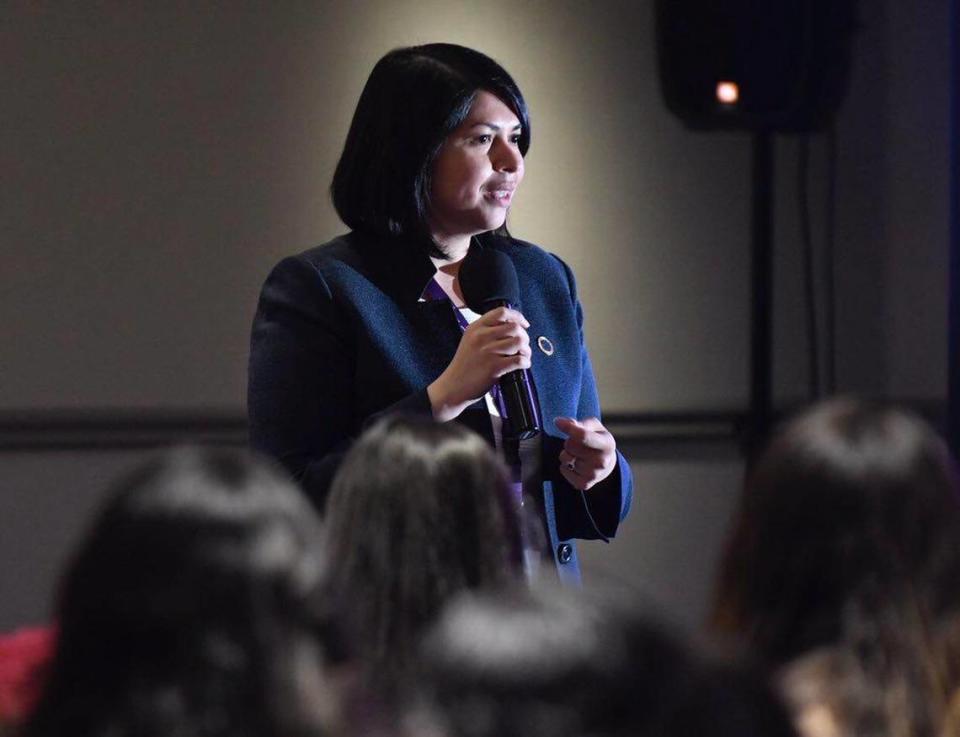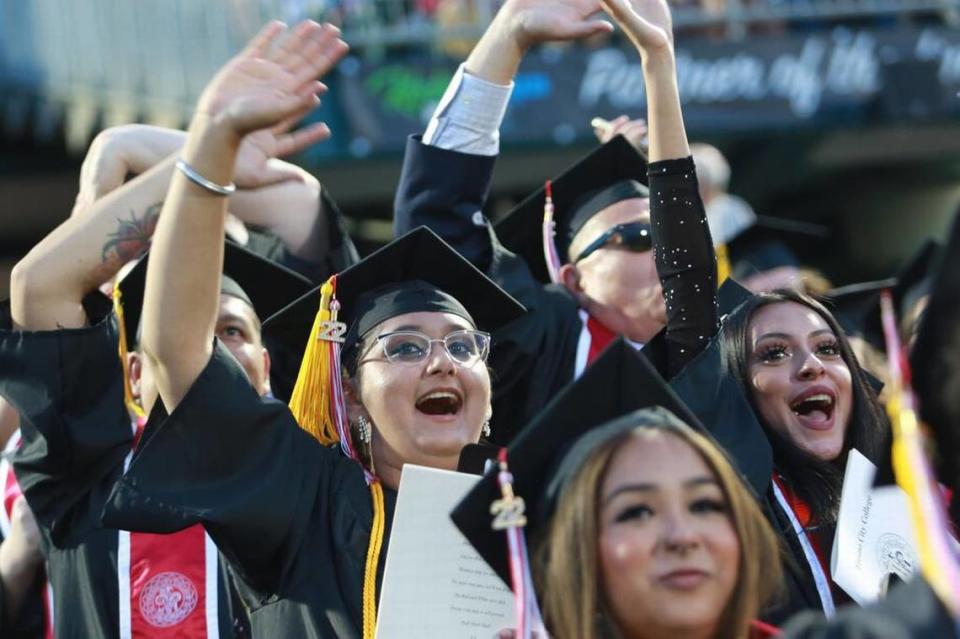Free money for junior college students. Here’s how to grab some.
You wouldn’t be wrong if you picture an image of Dr. Daisy Gonzales throwing fistfuls of dollars to those willing to take advantage of the state’s generosity.
The interim chancellor of the California Community Colleges system sounded like Oprah Winfrey during a telephone interview earlier this month. “Here’s money for you! And, more money for you! Money, money, money!”
Gonzales wants prospective community college students they have until Friday (Sept. 30) to take advantage of five programs designed to make higher education more affordable.
“It’s an exciting time, and it’s an opportunity that we need to take advantage of to get Californians back to believing in their dreams of higher education,” said Gonzales.
That state, said Gonzales, understands that “college affordability became a big priority for how this state is going to recover from this pandemic.”

Almost half – 46% – of community college students pay no tuition fees, but 76% of all students have at least a part-time job to help them with costs, said Gonzales.
Here are the five programs:
Free tuition!
Any full-time student who has not earned a credential or degree qualifies for free tuition at any college. The state doubled the funds for the California College Promise Grant in June.
“They gave twice the amount of money so that more Californians can come back full-time so that they can get to the end destination of their (educational) journey in a shorter amount of time,” said Gonzales.
Up to $1,298 in supplemental funds
In addition to free tuition, the state is offering up to $1,298 per semester for students who are enrolled in 12 to 14½ units.
The Student Success Completion Grant, said Gonzales, can be used or child care, housing, food or technology.
“It’s a big new investment for our students,” she said.
$2,500 to learn new skills
People who lost jobs during the pandemic or were displaced will get $2,500 if they return to college to learn a new skill. The Golden State Education and Training Program is a new program for residents to upskill, reskill and use higher education to get back into the workforce.
“They were displaced when their industry was not considered essential,” said Gonzales, who noted the $2,500 can be used for “any other expenses other than tuition.”
“What I’m most excited about is that once we get you through the door to believe that you can get a career technical education degree, then we can connect you to your associate’s degree and then to a bachelor’s degree,” said Gonzales. “Then we can introduce you to the lay of the land of other resources.”
The state’s 116 community colleges offer more than 200 career training programs, she said.
A $1,500 savings account
CalKIDS, a taxpayer-funded scholarship program, will provide up to $100 automatically to every child born in the state after July 1. The investment would increase annually to the point that by the time that child graduates from high school, he or she will have $1,500 for higher education.
There is no citizenship requirement.
“These are dollars that go straight to the students’ hands so that they can succeed,” said Gonzales.
Baccalaureate degrees now available
Community colleges can now offer bachelor’s degrees, which is accompanied by middle class scholarships that had been accessible in the past only by University of California and California State University students.
“It offers students an opportunity to use those resources for housing, transportation, books, child care and all the other pieces that also get in the way of continuing your dreams,” said Gonzales.
You must hurry to take advantage of courses that accept admission in late September.
“We want the whole family to get engaged and apply for these resources,” said Gonzales. “There are many late fall start courses, so most of our colleges do have courses that are open.”
Details: ICanGoToCollege.com, or check with your local community college.


 Yahoo Movies
Yahoo Movies 
